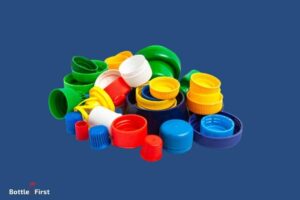Can I Put Lemon in My Stainless Steel Water Bottle? Yes!
Yes, you can put lemon in your stainless steel water bottle. However, it’s important to regularly clean the bottle to prevent corrosion or damage from the acidic lemon juice.
Stainless steel is generally resistant to corrosion, making it a good choice for acidic substances like lemon juice.
Although stainless steel can handle the acidity, over time, consistent exposure to acidic liquids can potentially damage the protective layer of the steel.
To avoid this:
After adding lemon to your water, if you notice a metallic taste or discoloration, it’s time to perform a deep clean to ensure the integrity of the stainless steel.
Enjoy the zest of lemon in your water and the durability of stainless steel, keeping in mind that a clean bottle is the vessel for a refreshing and safe hydration experience.
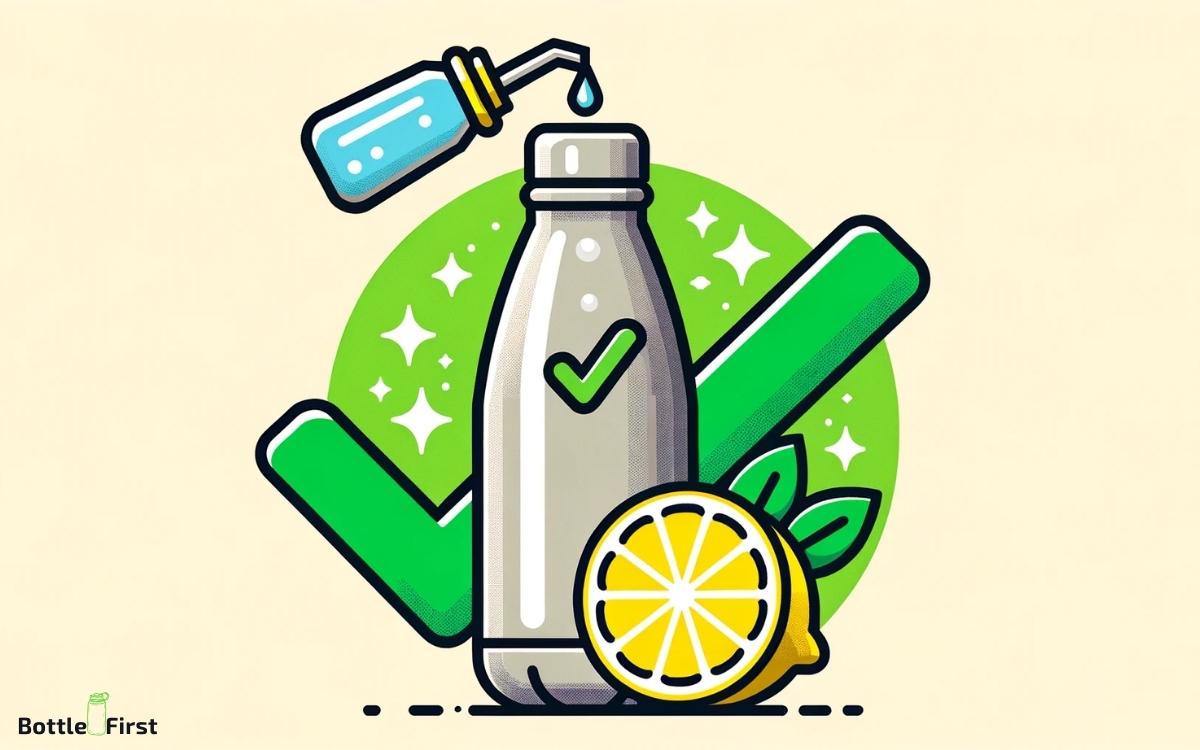
Key Takeaway
How to Clean and Maintain a Stainless Steel Water Bottle With Lemon
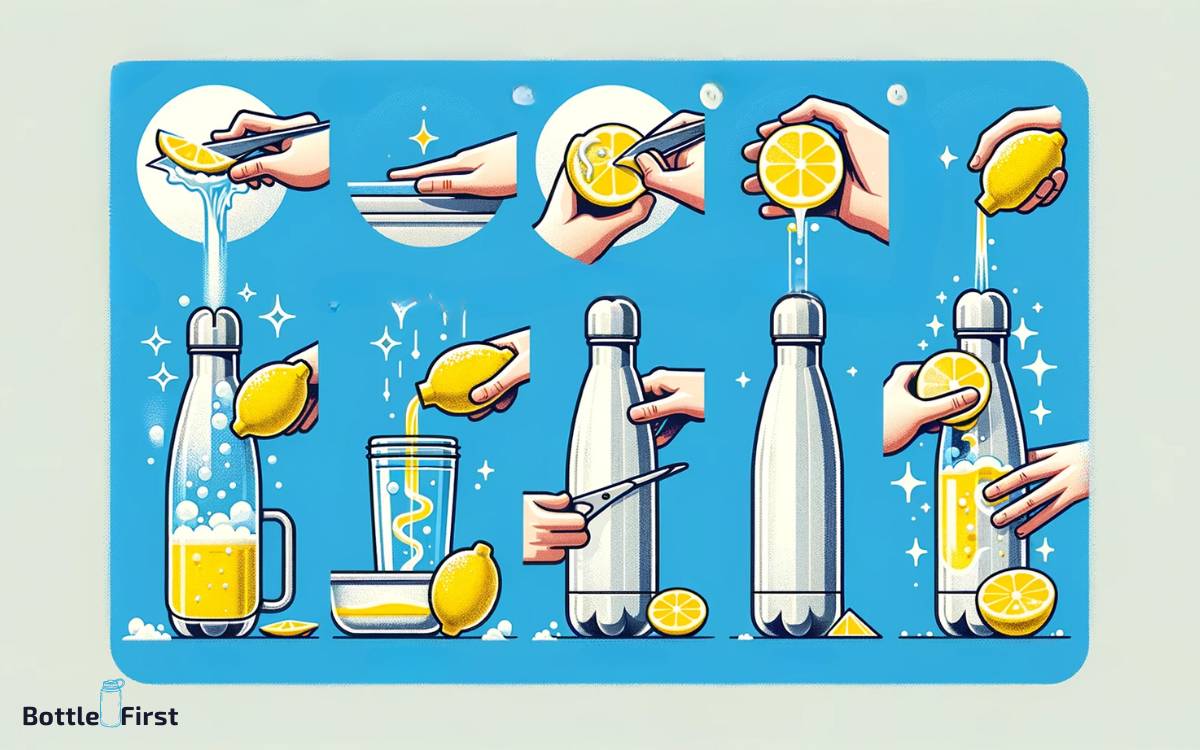
When maintaining a stainless steel water bottle that has been infused with lemon, it is important to regularly clean and carefully monitor for any signs of metal leaching.
To clean the bottle, begin by rinsing it with warm, soapy water and using a bottle brush to scrub the interior.
Then, create a solution of equal parts water and white vinegar, and let it sit in the bottle for a few minutes before rinsing thoroughly. For tougher stains or odors, add baking soda to the vinegar solution.
Additionally, it’s recommended to avoid using abrasive cleaners or bleach, as they can damage the stainless steel.
Regularly inspect the bottle for any signs of discoloration, unusual odors, or changes in taste, as these may indicate metal leaching.
Benefits of Adding Lemon to Water

How can adding lemon to water benefit your health and hydration? Lemon-infused water offers a myriad of health benefits, making it an innovative choice for those seeking hydration with added advantages.
Lemons are a rich source of vitamin C, a powerful antioxidant that supports the immune system and promotes radiant skin.
The citric acid in lemons aids in digestion and can help prevent kidney stones. Furthermore, the refreshing citrus flavor of lemon water can encourage increased water consumption, ensuring optimal hydration levels.
This may be particularly beneficial for individuals who struggle to meet their daily water intake goals.
The addition of lemon to water not only enhances the taste but also provides a healthful boost, making it a compelling choice for those seeking to elevate their hydration experience.
Alternatives to Lemon for Flavoring Stainless Steel Water Bottles
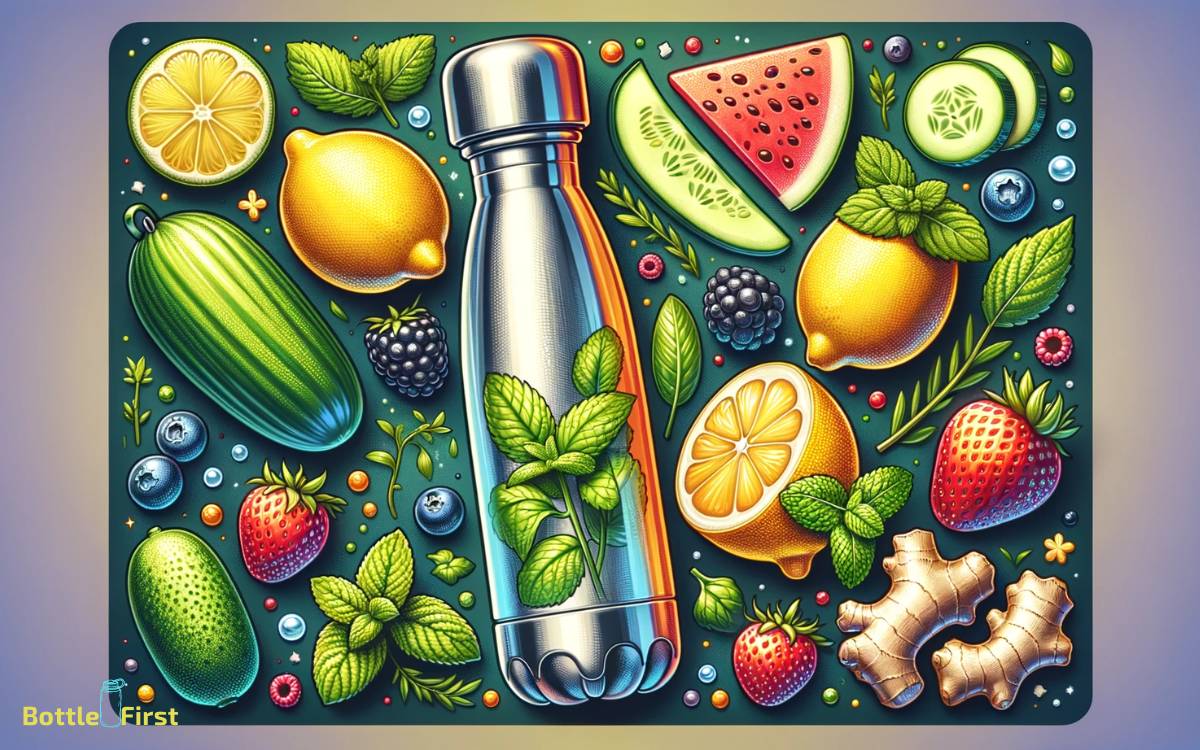
Flavoring stainless steel water bottles with citrus fruits, such as oranges or limes, can provide a refreshing alternative to using lemon. Oranges bring a sweet and tangy flavor, while limes offer a slightly more tart and zesty taste.
Another innovative option is to infuse your water with fresh herbs like mint, basil, or rosemary. These herbs not only add a delightful flavor but also bring a hint of natural fragrance to your water.
Additionally, you can experiment with adding slices of cucumber or a few chunks of watermelon to your water bottle for a subtle and unique twist.
These alternatives not only enhance the flavor of your water but also introduce a creative and enjoyable way to stay hydrated throughout the day.
Potential Risks of Using Lemon in Stainless Steel Bottles
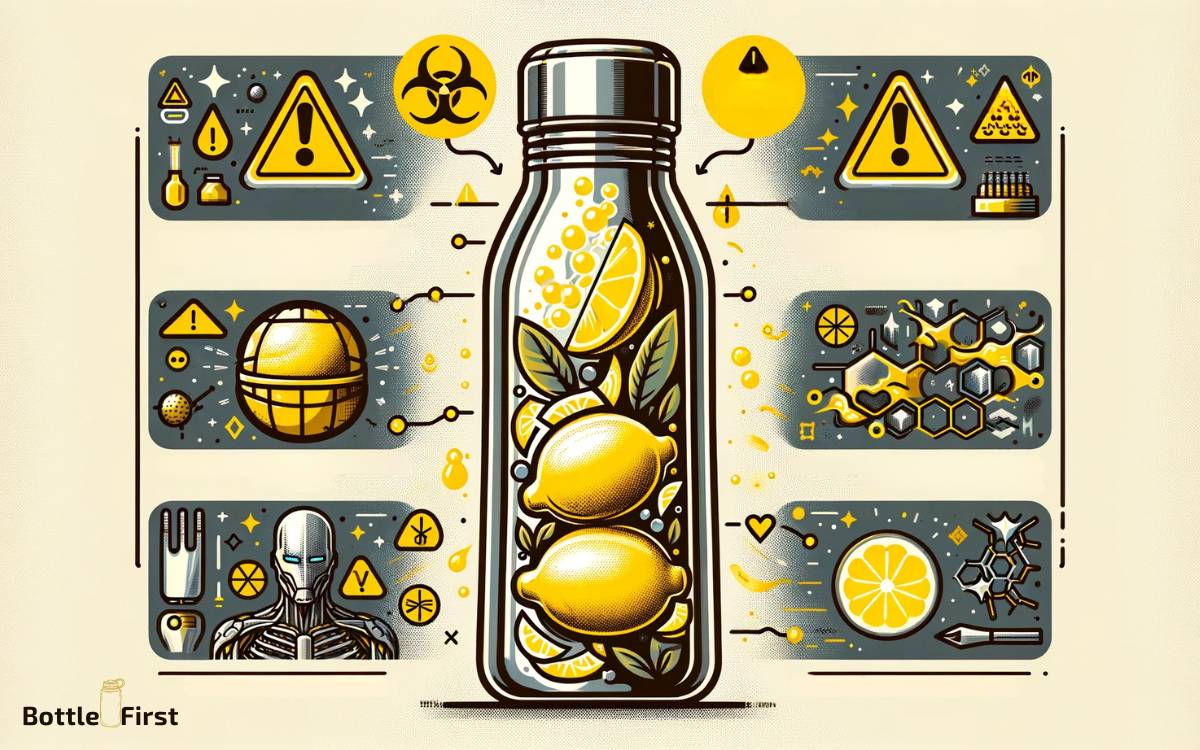
The acidity of lemon, when in prolonged contact with stainless steel, can potentially lead to leaching of metals and alteration of the bottle’s taste and safety.
Stainless steel contains metals such as iron, chromium, and nickel, which could leach into the liquid when exposed to acidic substances like lemon juice.
This can not only affect the taste of the water but also pose potential health risks if consumed in large quantities. Additionally, the leaching of metals may compromise the structural integrity of the bottle over time.
To mitigate these risks, it is advisable to use a protective liner or opt for stainless steel bottles specifically designed to resist corrosion from acidic substances.
Understanding the potential risks associated with using lemon in stainless steel bottles is crucial for ensuring the safety and longevity of the container.
Tips for Safely Infusing Water With Lemon in Stainless Steel Bottles
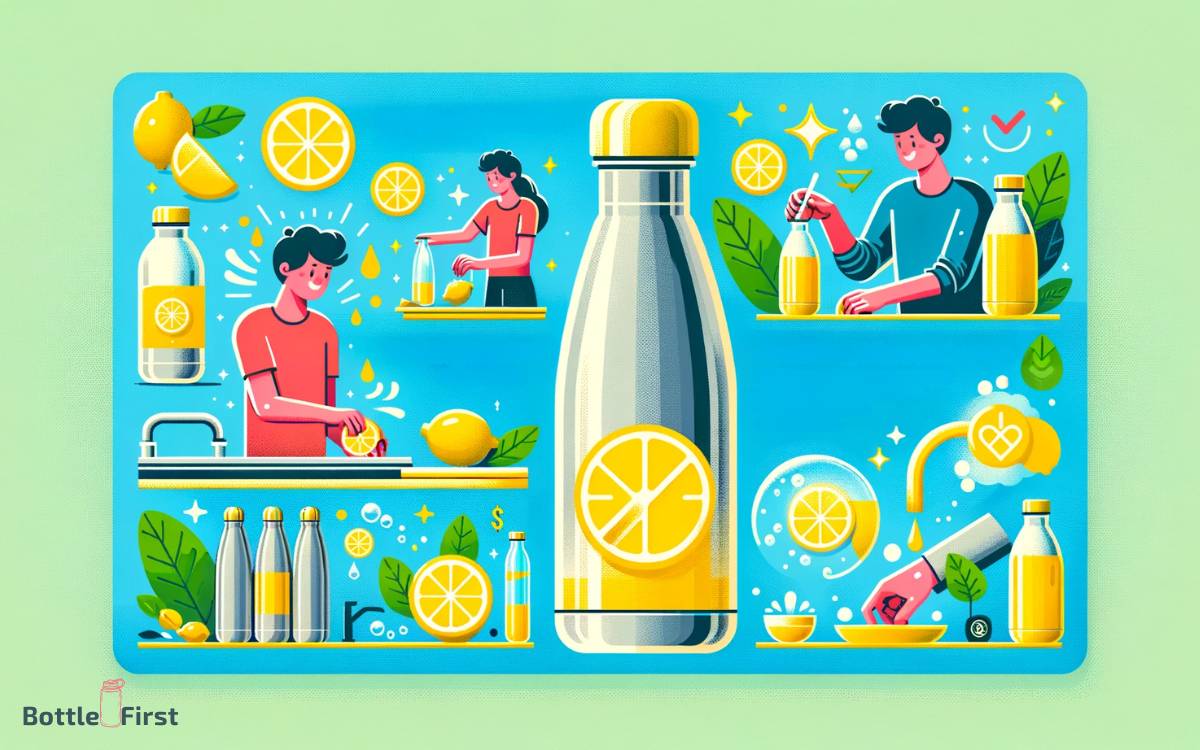
To ensure the safe infusion of water with lemon in stainless steel bottles, it is essential to carefully consider the potential risks associated with the acidity of lemon and its prolonged contact with the metals in the bottle.
Here are some tips for safely infusing water with lemon in stainless steel bottles:
- Use high-quality stainless steel bottles to minimize the risk of chemical reactions with lemon juice.
- Consider using a stainless steel bottle with a food-grade internal coating to provide an additional layer of protection.
- Avoid prolonged storage of lemon-infused water in stainless steel bottles to minimize the potential for metal leaching.
- Regularly clean and maintain stainless steel bottles to prevent buildup and reduce the risk of chemical interactions.
Conclusion
While there are potential risks to using lemon in stainless steel water bottles, with proper care and maintenance, it is possible to safely infuse water with lemon in these bottles.
It is important to be mindful of the acidity of the lemon and to regularly clean and maintain the bottle to prevent any potential damage.
Additionally, there are alternative options for flavoring water in stainless steel bottles that can be considered.



